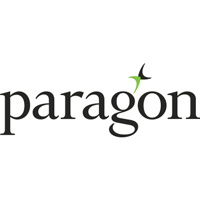Paragon Banking Group PLC (LON:PAG), the specialist lender and banking group, today announced its half year results for the six months ended 31 March 2019.
Nigel Terrington, Chief Executive of Paragon, said:
“We have delivered a strong first half, with increased profits benefiting from good growth in lending and improved margins. This reflects our strategic transformation to become a more broadly based banking group focussed on supporting British SMEs and consumers in specialist lending markets.
In buy-to-let, we have continued to grow lending adapting to the changing market dynamics. Professional landlords are becoming the backbone of the UK private rented sector, where we are well placed to address their complex needs.
The successful integration of the Titlestone development finance business, together with strong growth in the wider Commercial Lending division means that we now offer a stronger and broader proposition to our SME customers. This, together with the changing mix of buy-to-let business, has helped to create a structural improvement in the Group’s net interest margin which will continue during the rest of the year and beyond.
The half year performance provides further evidence of the success of Paragon’s five-year transformation into a specialist banking group. Our diversification will enable us to continue to grow our customer base and deliver improving returns to shareholders.”
Strong operational and financial performance
· Growth in lending volumes of 30.2% to £1,289.2 million (2018 H1: £990.3 million)
· Diversification driving structural growth in Net Interest Margin (‘NIM’) to 224bp (2018 H1: 216 bp)
· Underlying profits up 8.7% to £79.8 million (2018 H1: £73.4 million)
· Specialist small and medium size customer focus, including professional buy-to-let and finance for small property developers
· Retail deposit balances up 11.0% to £5.9 billion
· Improved technology enhancing customer delivery
· Through-the-cycle management and operating experience evidenced in buy-to-let mortgage arrears of 0.12%
· Strong capital base supporting growth, with basic CET1 of 13.7% (2018 H1: 15.5%)
· Increased interim dividend up 27.3% to 7.0 pence per share (2018 H1: 5.5 pence)
OVERVIEW AND OUTLOOK
Overview
Our strategy to build a specialist bank has delivered another strong set of results for the period to March 2019. We have achieved good growth in operating profits and underlying earnings, supported by strong lending volumes, a growing loan book and improving NIM. The concentration on specialist markets enables us to utilise our competitive strengths supported by the deployment of our through-the-cycle experience and a robust approach to credit risk, and mitigates the competitive pressures in the wider, more commoditised banking sector.
Financial Performance
Underlying profits for the half year were 8.7% higher than the same period in 2018 at £79.8 million with strong performances from both the Mortgage and Commercial Lending divisions, each of which delivered loan and margin growth. Structural benefits from the portfolio mix, with new buy-to-let and commercial lending margins wider than those achieved on the legacy buy-to-let portfolio, underpinned an 8 basis-point improvement in NIM to 224 basis points. This was achieved despite maintaining cautious liquidity levels in the face of Brexit-related market uncertainties and disposing of a high-yielding Idem Capital loan portfolio just before the period began.
In addition to strong new business flows, we have seen lower levels of buy-to-let redemption activity in the period, most notably on the new book, where annualised redemption rates fell to 11.3% from the 18.2% reported at the last half year, contributing to a 10.4% year-on-year increase in the loan book, which had reached £12.5 billion at the period end.
Operating costs were 15.3% higher than in the first half of 2018, reflecting full-period expenses for the Iceberg and Titlestone businesses acquired in December 2017 and July 2018 respectively. The Group continues to increase its technology investments and has also incurred significant project costs during the period, most notably in respect of professional costs to support its pending IRB application.
As expected, the cost of risk rose slightly, to 8 basis points, reflecting the introduction of the IFRS 9 accounting approach. Provision charges within the Mortgage segment fell period-on-period, whereas the charge in the Commercial Lending segment rose, reflecting its relative growth rate and higher through-the-cycle provisioning expectation.
Statutory earnings per share were 5.1% lower year-on-year at 22.5 pence per share, despite the improved underlying performance. An anomalous movement in swap rates during March, fuelled by Brexit-related uncertainties, resulted in a fair value charge of £7.8 million for the period. This reduced statutory reported profit, but will revert to zero over the lives of the underlying instruments.
Removing the impact of this fair value movement, underlying earnings per share rose 11.1% to 25.0 pence per share, and the underlying Return on Tangible Equity (‘RoTE’) increased to 14.4% from the 13.3% reported in the first half of 2018.
New Business Activity
New business growth was strong in both the Mortgage and Commercial Lending segments.
Within the Mortgage division, our focus continues to be to support the needs of professional landlords. Complex lending comprised 91.5% of the period-end pipeline and completions rose 44.0% from their first half 2018 level. Total new lending in the Mortgage segment was 15.7% higher in the first half of 2019 compared to the first half of 2018.
As a consequence of this strong new business flow and slower redemption rates, the net loan book in the Mortgage segment rose 6.6% from March 2018 to March 2019.
Following the acquisitions in 2018, the Commercial Lending segment has seen the greatest rate of change, with new loans and advances up 69.1% at £455.3 million and the net loan book 88.8% higher at £1.28 billion. Total new advances were £186.0 million higher, with development finance up £125.6 million, asset finance up £47.2 million, structured lending up £17.6 million and motor finance down £4.4 million, where volume growth has been strategically sacrificed for margin enhancement. Our existing development finance business has now been fully integrated with the Titlestone business, now rebranded as Paragon Development Finance.
Our deposit-taking franchise has continued to develop, with balances rising 37.2% year-on-year to £5.9 billion. Our traditional online distribution has been augmented during the half year via a relationship with Hargreaves Lansdown, and further platform partnerships are under development. The average cost of our deposit book has increased by 6 basis points over the year to 1.81% at the end of March 2019, despite the increase in base rates since March 2018.
Capital Management
Capital ratios remain strong, with a CET1 ratio of 13.7%. Capital resources exceed our regulatory requirements and are in line with our risk appetites. The UK leverage ratio remains strong, at 6.5%.
We indicated a formulaic approach to determining the level of interim dividend with our 2018 results. The move from a dividend cover ratio of 2.75 to 2.5 times during 2018 has led to a particularly strong interim dividend in 2019 (the interim dividend being half of the prior year final) increasing 27.3% to 7.0 pence per share.
Diversification, Growth and Capital Optimisation
The diversification of the Group’s loan books and funding sources has been a core part of our strategy in recent years. Operating as a specialist bank, we aim to differentiate our offerings through a greater understanding of our markets, our customers, the products we offer and the associated risks of running such strategies, allowing us to optimise the balance between growth, returns and risk.
The diversification of the Group’s loan books and funding sources has been a core part of our strategy in recent years. Operating as a specialist bank, we aim to differentiate our offerings through a greater understanding of our markets, our customers, the products we offer and the associated risks of running such strategies, allowing us to optimise the balance between growth, returns and risk.
During 2018 we demonstrated our ability to recycle capital towards growth opportunities. Capital discipline, while maintaining prudent capital ratios, will remain a feature of our strategy going forward.
In the half year to March 2019 we initiated a thorough review of the risk weights we use to assess capital requirements, which confirmed our approach. We have made significant progress in the development of our second generation buy-to-let IRB models. Once these have been through their final governance reviews we will be ready to submit the first module in our IRB application process.
Outlook
Our strategy is to provide outstanding products and service to British consumers and SMEs. We deliver these through a deep understanding of the sectors in which we trade and the customers we serve, ensuring that the products we offer and the services which we provide are appropriate and delivered with a high standard of excellence whilst maintaining our strong credit standards. This specialisation and our through-the-cycle experience enable us to understand our target markets better than our competitors, providing a significant competitive advantage.
Our diversification strategy will support future business growth, delivering further value for our customers, employees and shareholders over the coming years. Economic uncertainties persist in the UK, but our disciplined approach to risk management leaves us well placed to withstand any potential stresses. We remain confident in our future prospects.







































